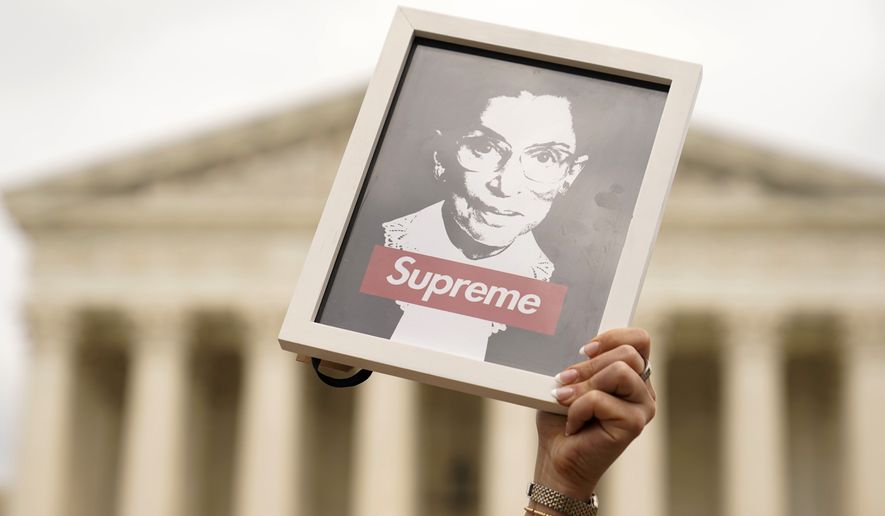The pro-choice activist group leading protests outside the home of Supreme Court justices vowed not to stop its “civil disobedience” despite laws prohibiting the gathering outside of the justices’ homes.
A spokesperson from the organization Ruth Sent Us said American law is “designed to protect corrupt officials and their property.”
“Some of these laws are clearly unconstitutional, which would explain why they are not enforced. Lawsuits resulting from enforcement are likely to result in the courts gutting these immoral laws, even with Trumpian appointees sitting in judgment,” said a spokesperson. “Breaking such laws would be victimless crimes, so they are perfect candidates for civil disobedience. We are committed to peaceful actions, but we will certainly not respect laws that stifle our first amendment rights.”
The individual who spoke on behalf of the group requested to remain anonymous citing fear of retaliation from conservatives.
“We were swamped with death and rape threats from ‘good’ Christians,” the spokesperson told The Washington Times.
A day earlier, Attorney General Merrick Garland met with Supreme Court officials over security concerns and ongoing efforts to protect the justices.
“The rise of violence and unlawful threats of violence directed at those who serve the public is unacceptable and dangerous to our democracy,” Mr. Garland said. “I want to be clear: while people vote, argue, and debate in a democracy, we must not — we cannot — allow violence or unlawful threats of violence to permeate our national life. The Justice Department will not tolerate violence or threats of violence against judges or any other public servants at work, home, or any other location.”
Other officials, including Virginia Gov. Glenn Youngkin, a Republican, also called for increased protection amid protests from progressive activists.
Justices have been a target of protests since earlier this month when a draft opinion was leaked from the Supreme Court that showed a majority of justices were poised to overturn Roe v. Wade, the landmark 1973 decision that gave women the national right to an abortion up to viability.
The protests could be breaking state and federal laws.
A Virginia law makes it a misdemeanor to protest outside of residences, while federal law bans protests aimed at obstructing justice. At least three justices reside in Virginia.
Pro-choice protesters have shown up outside the houses of Chief Justice John G. Roberts Jr., Justice Brett M. Kavanaugh, Justice Amy Coney Barrett and Justice Samuel A. Alito Jr.
It is the first time a full draft opinion has been leaked in the Supreme Court’s 233-year history.
In the draft opinion, first obtained by Politico, Justice Alito said abortion should return to the state legislatures.
“The Constitution makes no reference to abortion,” he wrote. “Roe was egregiously wrong from the start.”
“It’s time to heed the Constitution and return the issue of abortion to the people’s elected representatives,” reads the opinion, which was dated in February.
An official ruling in the case is expected by the end of June.
Justice Roberts said the draft opinion was authentic but noted it did not represent a final ruling. He has called for an investigation to uncover who leaked the document to the press.
The legal dispute at issue weighs a Mississippi ban on abortion at 15 weeks in the case of Dobbs v. Jackson Women’s Health Organization.
Mississippi officials argue that Roe should be overturned because it’s outdated.
The legal battle was brought by Jackson Women’s Health Organization, the state’s only abortion clinic, and a doctor who provides abortions. According to court papers, the clinic provides abortions up to 16 weeks of gestation.
They challenged the state’s Gestational Age Act, enacted in 2018. The law bans abortions after 15 weeks unless there is a medical emergency or severe abnormality within the fetus.
Correction: A previous version of this story misspelled the name of Justice Amy Coney Barrett.
• Alex Swoyer can be reached at aswoyer@washingtontimes.com.




Please read our comment policy before commenting.